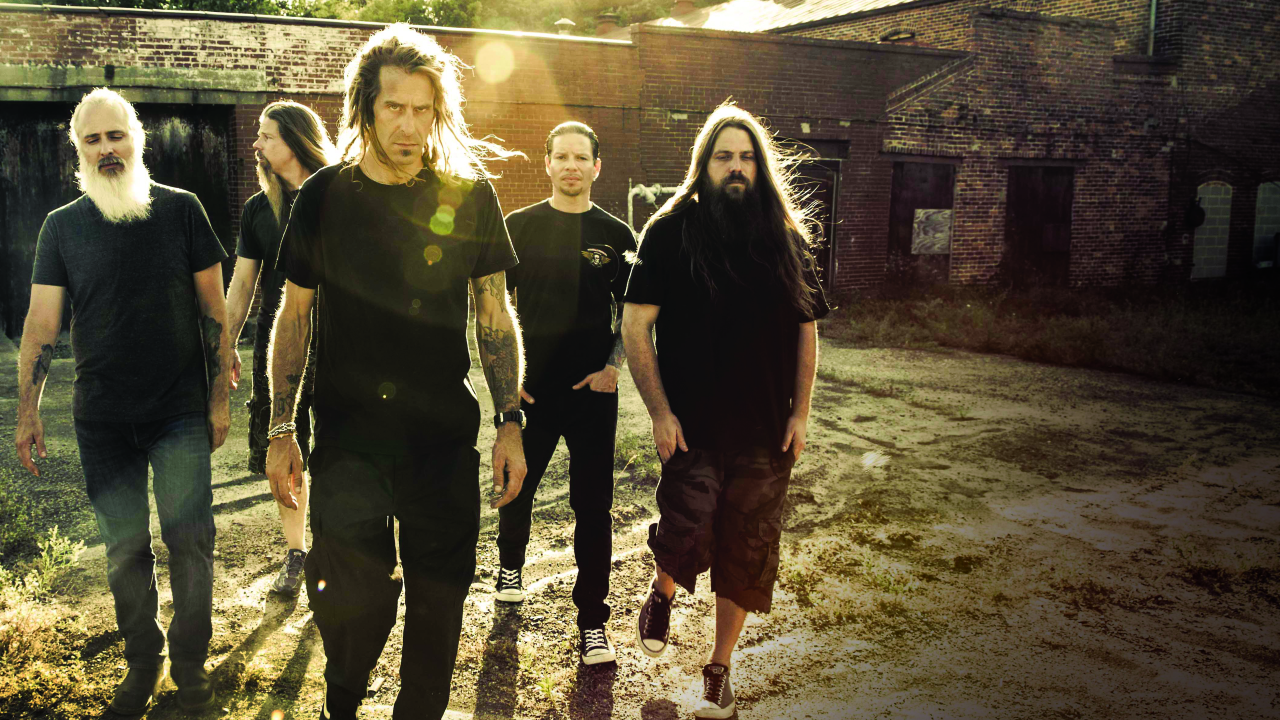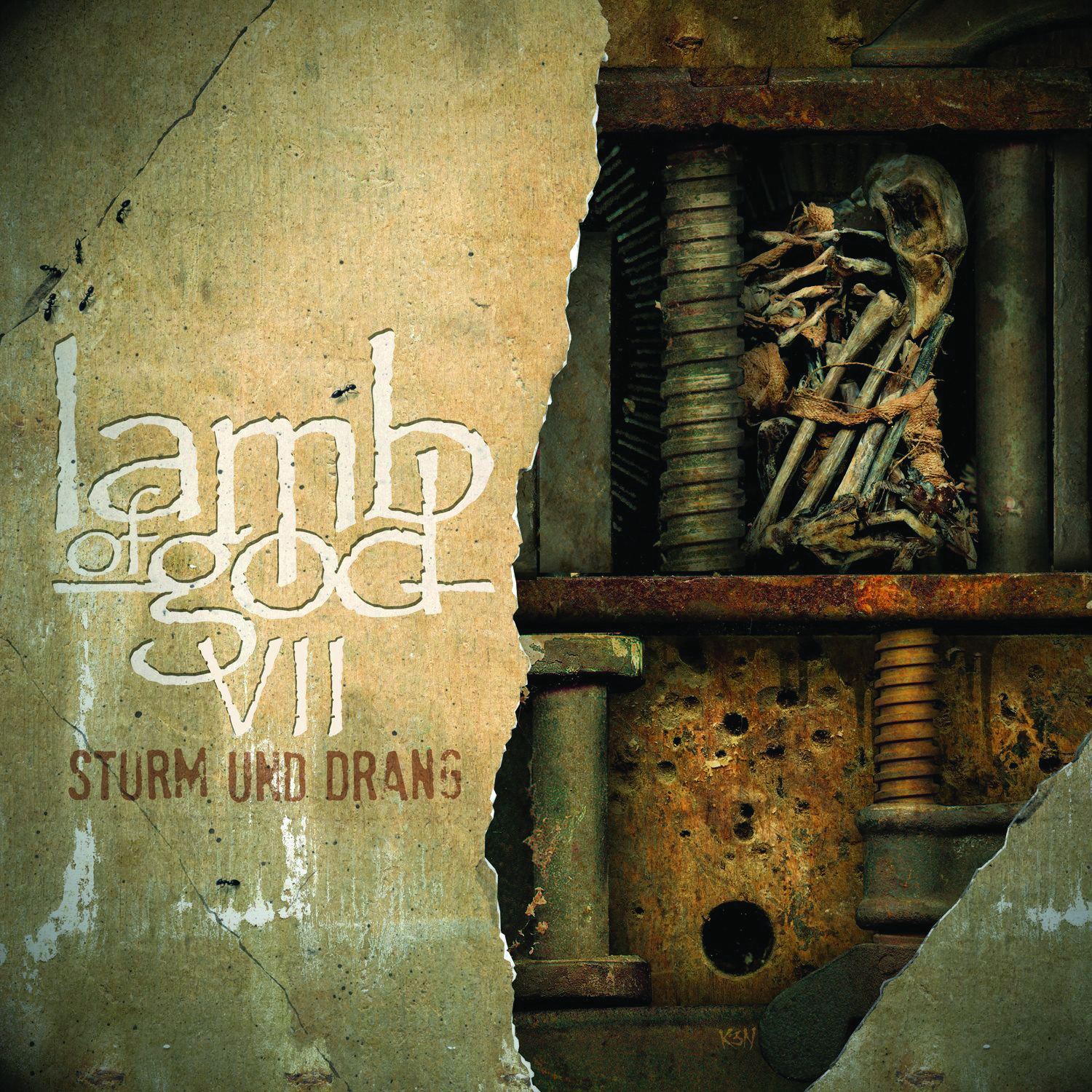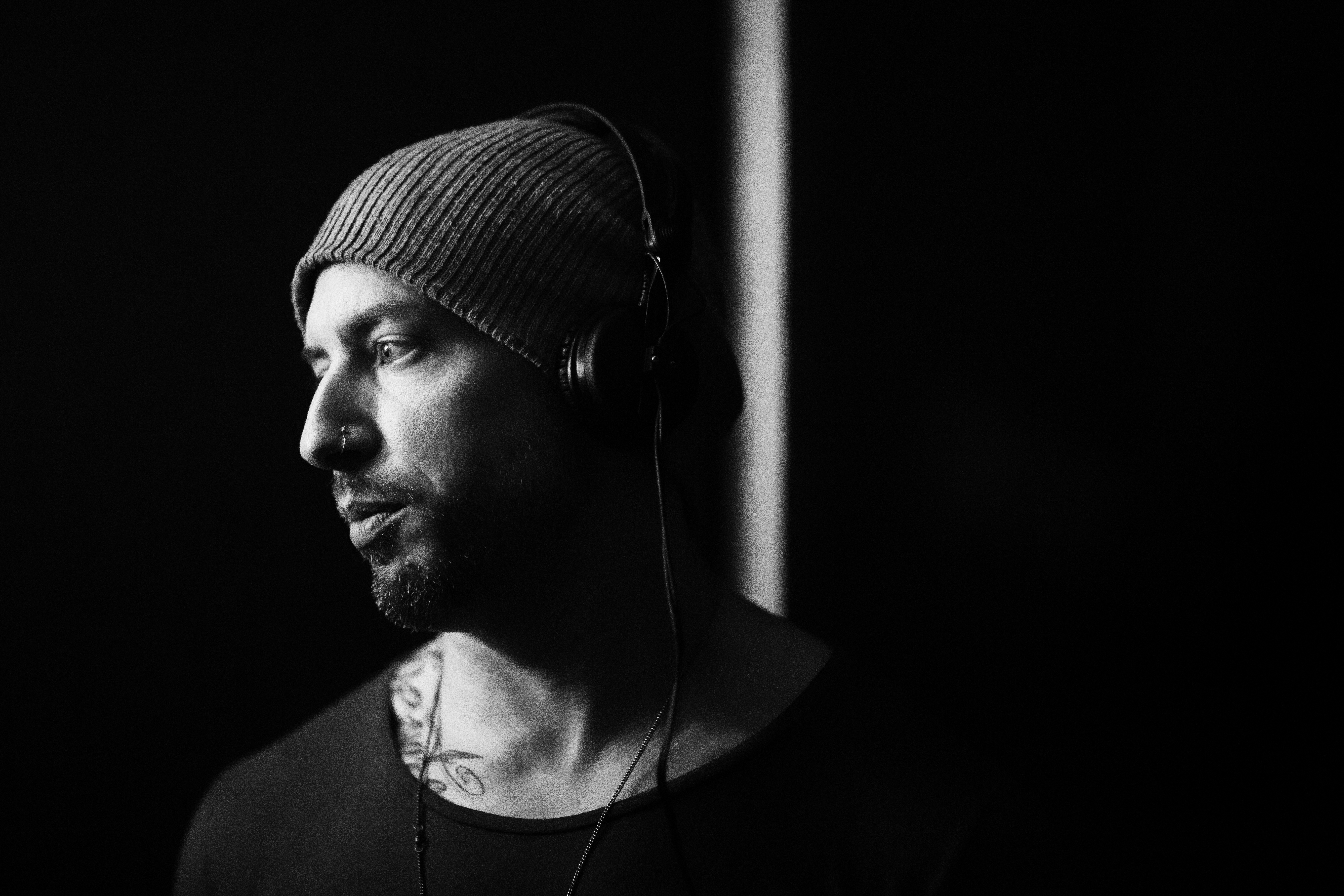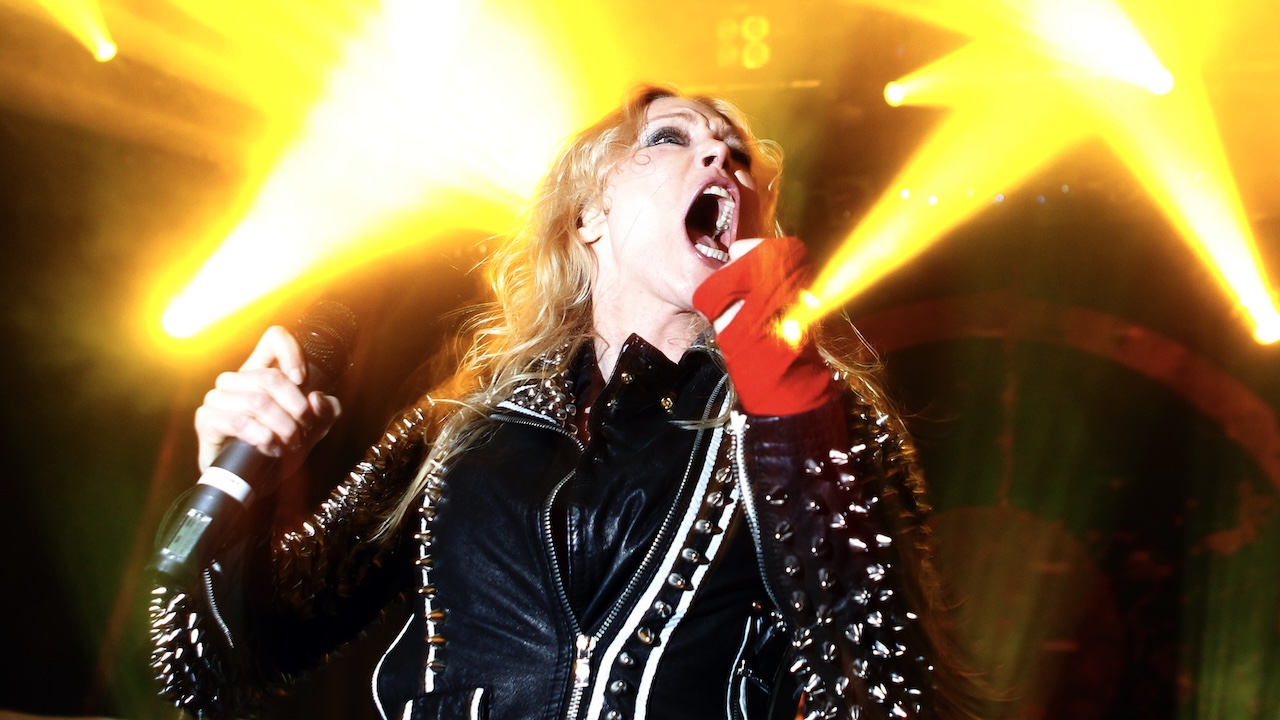Lamb Of God: The Calm After The Storm
Finally able to move on from Randy’s prison hell once and for all, Lamb Of God have poured 18 months of trauma into the darkest album of their career.

Select the newsletters you’d like to receive. Then, add your email to sign up.
You are now subscribed
Your newsletter sign-up was successful
Want to add more newsletters?

Every Friday
Louder
Louder’s weekly newsletter is jam-packed with the team’s personal highlights from the last seven days, including features, breaking news, reviews and tons of juicy exclusives from the world of alternative music.

Every Friday
Classic Rock
The Classic Rock newsletter is an essential read for the discerning rock fan. Every week we bring you the news, reviews and the very best features and interviews from our extensive archive. Written by rock fans for rock fans.

Every Friday
Metal Hammer
For the last four decades Metal Hammer has been the world’s greatest metal magazine. Created by metalheads for metalheads, ‘Hammer takes you behind the scenes, closer to the action, and nearer to the bands that you love the most.

Every Friday
Prog
The Prog newsletter brings you the very best of Prog Magazine and our website, every Friday. We'll deliver you the very latest news from the Prog universe, informative features and archive material from Prog’s impressive vault.
There were undoubtedly moments during Randy Blythe’s mercifully brief stay in Pankrác Prison in Prague when his band’s worldwide army of fans found themselves contemplating the possibility that Lamb Of God might be facing extinction.
After a movie (As The Palaces Burn), a self-penned book (Dark Days) and hundreds of interviews, it is perhaps understandable that Randy really doesn’t want to talk about Prague anymore. But like it or not, the story of Lamb Of God’s seventh album, VII: Sturm und Drang, clearly begins behind bars.
Recorded in Los Angeles with producer Josh Wilbur, with whom Lamb Of God made both Resolution and Wrath, VII: Sturm und Drang comprises a collection of stories that dig deep into the psychological and emotional consequences of human beings confronting extreme or hellish situations… all underpinned by some truly ferocious music, of course. Lyrics for two of the songs the band have released as previews for the new record, Still Echoes and 512, were both written in Pankrác while Randy was still largely clueless about whether his future was to be played out on stage in front of a roaring crowd or under lock and key in a foreign land. Still Echoes delves into the history and horrors of the prison itself, while 512 explores the impact of incarceration on the psyche and the soul. Typically brutal stuff in metal terms, perhaps, but more than ever these are songs born from real experiences, and both Randy and guitarist Mark Morton seem more passionate than ever about their music as a result.
Would it be fair to say that this album was destined to be a pretty dark and rageful affair?
Randy: “From the moment I was arrested until my final repeal, there was a year and a half of just pretty harsh mental duress on me. As soon as everything was said and done, I knew we had at least one more record in us. It had been so stressful that it had to get out. So yes, it’s a kind of dark record. The theme of the album just emerged. It’s about the way people react in extreme situations, starting, most noticeably, with the two songs that I wrote three years ago when I was in prison, because at that time I was reacting to an extreme situation by writing.”
Mark: “I wrote less on this album than I have in the past, but that was a natural move. It was pretty obvious to everyone that Randy was gonna have a lot to say! And that’s fine. In the past we’ve gravitated toward different songs anyway. This time I stepped back a little bit, because Randy was going to write the lion’s share. My number one goal was to ensure that creatively we were covering new ground. If not, why make another album?”
Towards the end of the As The Palaces Burn movie, Willie Adler [LOG guitarist] appears to suggest that the Prague experience had brought you closer together as people somehow. Do you think that’s true, and has it affected how this album came out?
Sign up below to get the latest from Metal Hammer, plus exclusive special offers, direct to your inbox!
Randy: “Ha ha ha! It’s a complete fallacy. It’s a bunch of horseshit! Are we closer? Fuck no. No, no, no… this is not the Good Buddy Hug Club, and it’s never been to this day, and I don’t think it ever will be and that’s fine. But this album was a return to us being a band and I find that quite refreshing. It doesn’t mean we hang out when we’re off tour, because we don’t. But on this record we really worked together as a band, like we used to, and I think it really shows. It’s all because of our producer, Josh Wilbur. He encouraged Mark and Willie to come in and write together. So they did, and they hijacked each other’s riffs, and it was great, dude! It was a real collaboration and a return to the original way that we did things.”
Mark: “Nothing much has changed, except that the difference this time was that Willie and I came in with bits and pieces of songs and we put them all together in the studio. Collaborating like that really underscores that this is what Lamb Of God sounds like right now. This album is a really honest representation of where our heads are at.”

**You must have been thrilled to have both Chino Moreno and Greg Puciato singing on the new album… **
Randy: “Oh, definitely! Chino doesn’t live in California anymore, but he was coming to LA to write the new Deftones record. I’d reached out to him about being on the song Embers, because I just knew his voice was right for it. He moves the most in a vocal booth out of anyone I’ve ever seen! There’s a window in the vocal booth and Chino’s got his headphones on but I can’t see him at all… then Josh hits ‘record’ and you see him literally run across the booth to sing at the mic. It was crazy.”
Mark: “Embers is a very personal song for me. It’s about loss, and how people cope with that, and sometimes don’t cope with it. It’s a particular favourite of mine. That song takes some pretty interesting turns musically and in the way it’s arranged. It’s great to have Chino’s voice on there. I love that we can do that. I love that we can step outside of that box and it no longer feels risky. I can’t think of much that would bum me out more than if we were just making the same record over and over again.”
And what about Greg? He’s a vocal powerhouse, isn’t he?
Randy: “Oh yeah, but Greg is the exact opposite of Chino. He smashes up into the spit-stopper on the microphone and he’s eating it the whole time! Watching that dude track was jaw-dropping. Perfectly in tune all the time… it was incredible. I did some singing on this record, on a song called Overlord, and it’s a new thing for me in the studio, learning about what to do with my voice. But they were much more in their comfort zone.”
Those vocals on Overlord are a revelation, though… suddenly, Randy’s a crooner!
Mark: “Well, Randy sang the whole first verse of Insurrection on our last album, so we got that out of the way as the first time he was gonna sing. That wasn’t why we did it, but it broke the ice. Now we come back to Overlord and it’s the first time the majority of a song has been vocally melodic, so Randy’s done it more this time, but it’s not the first time.”
Randy: “I was at the beach surfing a lot. Willie sent me the song and I started singing in my truck while I was driving. It all happened very naturally. I thought, ‘Holy cow! I could actually sing to this!’ Ha ha ha!”
There are some fascinating stories that unfold on this record. Can you tell us about Anthropoid?
Randy: “It’s named after Operation Anthropoid, which was the plot to assassinate Reinhard Heydrich, the Butcher Of Prague, the main architect of the final solution in World War II. The Nazis had come in to Czechoslovakia and crushed all resistance, so some of the regular army were overseas fighting and some were in the UK. These British-trained guys parachuted in and assassinated Heydrich.The Nazis went berserk and started killing people. It’s a gruesome tale. At the end, there were seven of them left in this church in Prague, and somebody ratted them out and the Nazis came. Three were killed upstairs and in the end there were four guys in the church’s crypt, and they held off 800 Nazi stormtroopers for many hours. These guys fought ’em until they ran out of bullets and then they killed themselves so they wouldn’t be taken prisoner. These were superior men. That’s about as high level as you can get, in terms of character and doing the right thing.”

The album’s closing track, Torches, deals with self-immolation. Do you feel you have any insight into what motivates someone to do that?
Randy: “As a writer, I would say, ‘If you want to understand someone you ought to walk a mile in their shoes’, but I don’t want to walk in someone’s flaming shoes for two feet, much less a mile. For me I think it’s about trying to do a bit of skilful storytelling, but I only tell stories about things that I feel a connection with. Torches was influenced by this guy, Jan Palach, who immolated himself in Wenceslas Square in Prague in protest against the Warsaw Pact invasion. That’s pretty powerful. You can go there to where he was, and there’s an indentation in the ground where he walked down the steps on fire and collapsed. It’s quite sobering to see. It’s really intense. That’s a pretty extreme situation. Setting yourself on fire is pretty fucking hardcore.”
Extra metal points for the German album title, too…
Randy: “Ha ha ha! Yeah, the Germans love it. Mark and I started talking about album titles but we couldn’t really come up with a single word or phrase that encapsulated how people behave in extreme situations. The Germans are great at cramming complex concepts into one or two word, neat Germanic packages, like zeitgeist and schadenfreude and all these other crazy things… and they’re cool-sounding words! The literal translation is ‘Storm And Stress’ – it sums up everything on the record perfectly.”
Mark: “Yeah, it’s the perfect title for this record. This has been a unique period for the band, and not like anything we’ve ever experienced before. We’re still really lucky to be able to tour the world and do this for a living, and it’s an honour that people still want to hear our music and come see us play. We’re not reinventing the genre, but we’re always moving forward. It’s still pretty exciting to be part of Lamb Of God.”
VII: Sturm Und Drang is out now via Nuclear Blast. Randy’s book, Dark Days, is out now via random house

THE REBEL ALLIANCE
Randy teamed with Dillinger’s Greg Puciato on political track Torches. Greg tells us more…
“Randy and I had a distant mutual admiration. We have the same ideas about music and how you present it. We grew up listening to the same bands; we saw ourselves similarly in that we didn’t want to get trapped by metal or hardcore or the… scene, and we both caught heat about things we said on Twitter. We’d joke about that.
“Then Josh Wilbur, who did the Killer Be Killed record and lives near me, started work on the new Lamb Of God album. He said, ‘Randy’s gonna be here for a couple of months – let’s hang out.’ Pretty early on Randy said to me, ‘We’ve never had guest vocals, but I’ve got two songs – one I want Chino to be on and the other I want you.’ I immediately said, ‘I don’t even think you’re going to have to send it to me!’ I knew I wanted to do it.
“He sent it over with a book so I could read up on Jan Palach. Then he said, ‘We’re going to have to get you to come down and record it, like, tonight.’ I had to rush there and go to work. I wrote the lyrics based on what he’d already written, tried to get into that mindset that he was in when he was writing the lyrics, and we got it done.
“It was the first time I’d seen him in about a year, and we just talked a ton; a lot about his incarceration. I ended up proof-reading a lot of his book, and it’s one of the most insane things you’ll ever read. You have got to read it. I can’t imagine what that experience would be like. People think they know everything about this case. They don’t. It’s one of the most fucked-up things you’ll read. It certainly puts your life and problems into perspective.
“But for a gargantuan band like Lamb Of God to only want two singers, and one of them is Chino Moreno and the other is me… that to me is a genuine honour.”

Dom Lawson began his inauspicious career as a music journalist in 1999. He wrote for Kerrang! for seven years, before moving to Metal Hammer and Prog Magazine in 2007. His primary interests are heavy metal, progressive rock, coffee, snooker and despair. He is politically homeless and has an excellent beard.
